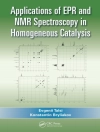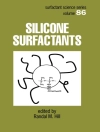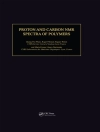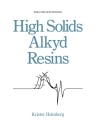Tribological Properties, Performance, and Applications of Biocomposites
Discover the principles and applications of biocomposites with this comprehensive guide
For decades, lightweight composites composed of synthetic fibers have found an enormous range of industrial applications, often replacing metals in various industrial processes because of their distinctive properties. However, these synthetic fibers produce considerable carbon dioxide emissions and are difficult to recycle, making them unsuited to renewable industry and the demands of a sustainable world. In recent years, polymer composites of natural fibers—called biocomposites—have been gaining popularity, presenting a superior alternative both ecologically and mechanically.
Tribological Properties, Performance, and Applications of Biocomposites provides a comprehensive overview of these natural fiber polymer composites and their properties as they behave in relate motion and interact with other substances. Drawing insights from both academic research and industry, it provides both theoretical insights and practical applications of biocomposite polymers. The result is an essential tool in updating industry with cutting-edge technology for a sustainable future.
Tribological Properties, Performance, and Applications of Biocomposites readers will also find:
- Detailed discussion of biocomposites as they interact with different matrices, nanoparticles, and more
- Applications for technologies in areas including dental, biomedical, and tissue engineering
- An editorial team with decades of combined experience in biocomposite research
Tribological Properties, Performance, and Applications of Biocomposites is ideal for materials scientists, chemists, and engineering scientists in both academia and industry.
Inhoudsopgave
Preface xiii
1 Tribological Characterization of Biocomposites: An Overview 1
Manickam Ramesh, Thangamani Vinitha, and Manickam Tamil Selvan
1.1 Introduction 1
1.2 Tribological Characterization 2
1.2.1 Flax Reinforcement 3
1.2.2 Coconut Coir Reinforcement 4
1.2.3 Banana Reinforcement 4
1.2.4 Hemp Reinforcement 4
1.2.5 Ramie Reinforcement 5
1.2.6 Calotropis gigantea Reinforcement 5
1.2.7 Kenaf Reinforcement 6
1.2.8 Betel Nut Fibers 7
1.3 Parameters Influencing the Tribological Characteristics 8
1.3.1 Impact of Reinforcement Orientation on Wear Behavior 8
1.3.2 Effect of Reinforcement Volume Fraction on Wear Behavior 9
1.3.3 Effect of Fillers on Wear Behavior 11
1.3.4 Influence of Surface Modification on Wear Behavior 11
1.4 Morphology Analysis of Tribological Characteristics 12
1.5 Conclusion 14
References 15
2 Tribological Properties of the Natural Fiber-Reinforced Epoxy Composites 19
Lin Feng Ng and Mohd Yazid Yahya
2.1 Introduction 19
2.2 Fiber-Reinforced Composites 20
2.3 Cellulosic Natural Fibers 22
2.4 Impact of Tribology on the Environment and Industry 23
2.5 Tribological Properties of FRPs 25
2.5.1 Tribological Properties of Natural Fiber-Reinforced Epoxy Composites 25
2.5.2 Tribological Properties of Natural Fiber-Reinforced Epoxy Hybrid Composites 30
2.6 Conclusion 33
References 34
3 Wear Properties of Flax/Epoxy-Based Composites With Different Machining Parameters 39
K.R. Sumesh, Petr Spatenka, and G. Rajeshkumar
3.1 Introduction 39
3.2 Materials and Methods 40
3.2.1 Method 40
3.2.2 Wear Testing 40
3.3 Results and Discussion 41
3.3.1 Wear Results 41
3.4 Conclusions 43
References 43
4 Polyester-Based Biocomposites for Tribological Applications 47
Anand Gobiraman, Santhosh Nagaraja, and Vishvanathperumal Sathiyamoorthi
4.1 Introduction: Background and Driving Forces 47
4.2 Materials and Methods 49
4.2.1 Natural Fibers 49
4.2.2 Polyester–Natural Fiber Composites 49
4.2.3 Hybrid Polyester—Composites 50
4.2.4 Methods of Production of Biocomposites 51
4.2.4.1 Stratification 51
4.2.4.2 Hand Lay-Up Method 52
4.2.4.3 Vacuum Bagging Technique 52
4.2.4.4 Tribological Tests on Natural Fiber-Reinforced Polyester-Based Biocomposites 52
4.3 Tribological Characteristics of Polyester-Based Biocomposites 53
4.4 Polyester-Based Biocomposites for Tribological Applications 59
4.5 Conclusions 60
References 61
5 Tribological Properties of the Natural Fiber-Reinforced Vinyl Ester Composites 65
Krushna Gouda, Muthukumar Chandrasekar, Vellaichamy Parthasarathy, Senthilkumar Krishnasamy, and Senthil Muthu Kumar Thiagamani
5.1 Introduction 65
5.2 Natural Fiber-Based VE Composite 70
5.3 Problems Associated with Natural Fiber-Based Composite 71
5.4 Conclusion 71
References 71
6 Friction and Sliding Wear Properties of the Natural Fiber-Reinforced Polypropylene Composites 75
Emel Kuram
6.1 Introduction 75
6.2 Polypropylene 76
6.3 Natural Fibers 76
6.4 Natural Fiber-Reinforced PP Composites 80
6.5 Tribological Properties of Natural Fiber-Reinforced PP Composites 83
6.5.1 Friction Coefficient of Natural Fiber-Reinforced PP Composites 86
6.5.2 Wear Behavior of Natural Fiber-Reinforced PP Composites 90
6.6 Conclusions 94
Acknowledgments 94
References 95
7 Wear Behavior of the Natural Fiber-Reinforced Thermoplastic Composites 105
Ramu Sundaramoorthy, Vellaichamy Parthasarathy, Jeyanthi Subramanian, Lin Feng Ng, and Naveen Jesuarockiam
7.1 Introduction 105
7.2 Wear Testing Methods 105
7.3 Factors Affecting Wear Behavior of the Composite 107
7.4 Motion Type 107
7.5 Load 107
7.6 Velocity 107
7.7 Temperature 108
7.8 Test Duration 108
7.9 Performance Metrics From the Wear Test 108
7.10 Wear Studies on Natural Fiber-Reinforced Thermoplastic Composites 109
7.11 Conclusion 113
References 113
8 Tribological Characterization of the Natural Fiber-Reinforced Polyimide Composites 115
Anand Gobiraman, Santhosh Nagaraja, and Vishvanathperumal Sathiyamoorthi
8.1 Introduction: Background and Driving Forces 115
8.2 Materials and Methods 117
8.2.1 Natural Fibers 118
8.2.2 Methods of Production of Natural Fiber-Reinforced Polymer Composites 119
8.2.2.1 Stratification 120
8.2.2.2 Hand Layup 120
8.2.2.3 Vacuum Bagging Technique 121
8.3 Polyimides 121
8.4 Natural Fibers/Polyimides Composites 121
8.5 Tribological Applications of Natural Fibers/Polyimides Composites 122
8.6 Conclusions 124
References 125
9 Investigations of the Friction and Wear Resistance of the Natural Fiber-Reinforced Polyamide Composites 129
İbrahim Can Kaymaz, Alperen Doğru, Miray Batıkan Kandemir, and Mehmet Özgür Seydibeyoğlu
9.1 Introduction 129
9.1.1 Thermosetting 130
9.1.2 Thermoplastics 130
9.1.3 Thermoplastic Composites 131
9.1.4 Thermoplastic Polymer Matrix 132
9.1.5 Fibers 133
9.2 Natural Fiber-Reinforcement Polyamide 134
9.2.1 Polyamide 134
9.2.2 Natural Fibers 135
9.2.2.1 Animal Fiber 135
9.2.2.2 Plant Fiber 135
9.2.3 Mineral Fiber 141
9.2.4 Production 141
9.3 Friction and Wear Resistance at Natural Fiber-Reinforcement Polyamide 142
9.3.1 Friction 142
9.3.2 Wear 145
9.3.3 Testing and Measurement 148
9.3.3.1 Friction Test Methodologies 148
9.3.3.2 Wear Test Methodologies 148
9.3.4 Applications 149
References 150
10 Friction and Wear Resistance of the Natural Fiber-Reinforced Polymer Composites With Metal Oxide Fillers 159
Niket Suresh Powar and Mariyappan Shanmugam
10.1 Introduction 159
10.2 Oil Palm Fiber 160
10.3 Jute Fiber 161
10.4 Bamboo Fiber 162
10.5 Coconut Fiber 164
10.6 Conclusion 164
References 165
11 Investigation of Sliding Wear Properties of Nanofiller-Based Biocomposites 167
Ajish Babu, Anusree Thilak, Harikrishnan Pulikkalparambil, Sandhya Alice Varghese, Sanjay Mavinkere Rangappa, Kuruvilla Joseph, and Suchart Siengchin
11.1 Introduction 167
11.2 Wear General Aspects 168
11.3 Methods to Measure Wear 170
11.4 Sliding Wear in Polymer Composites 171
11.5 Sliding Wear in Biocomposites, General 173
11.5.1 Sliding Wear Property of Biofiller Incorporated Biopolymer Composite 173
11.5.2 Sliding Wear Property of Synthetic/Inorganic Filler Incorporated Biopolymer Composite 175
11.6 Conclusion 177
Acknowledgment 177
References 177
12 Friction and Wear Properties of Biocomposites for Dental, Orthopedic, and Biomedical Applications 185
Piyush Gaur, Chandrasekar Muthukumar, and V. Parthasarathy
12.1 Introduction 185
12.2 Desired Properties and Classification of Biomaterials 188
12.2.1 Desired Properties of Biomaterials 188
12.2.2 Classification of Biomaterials 189
12.2.2.1 Metallic Biomaterials 189
12.2.2.2 Ceramic Biomaterials 193
12.2.2.3 Composite Biomaterials 193
12.3 Wear of Biomaterials 194
12.3.1 Wear Testing Methods 195
12.3.2 Friction and Wear Characterization Techniques for Biomaterials 196
12.4 Friction and Wear Properties of Biocomposites Used in Different Biomedical Applications 197
12.4.1 Dental Applications 197
12.4.1.1 Friction and Wear of Dental Resins 199
12.4.2 Orthopedic Applications 200
12.4.2.1 Friction and Wear of Biocomposites in Orthopedics Applications 203
12.5 Conclusion 207
References 207
13 Wear and Friction Behavior of Biocomposites Fabricated Through Additive Manufacturing 219
Manickam Ramesh, Kanagaraj Niranjana, and Manickam Tamil Selvan
13.1 Introduction 219
13.2 Additive Manufacturing of Biocomposites 220
13.3 Fabrication of Biocomposites Using AM 222
13.4 Types of Wear Behavior Based on Its Processes, Effects, and Environment 222
13.4.1 Adhesion Wear 223
13.4.2 Abrasive Wear 224
13.4.3 Erosive Wear 225
13.4.4 Fatigue Wear 226
13.4.5 Corrosive or Oxidative Wear 226
13.4.6 Fretting Wear 226
13.5 Determining the Level of Specimen Deterioration 227
13.6 Wear and Frictional Characteristics of AM Products 228
13.7 Method of Testing the Wear and Friction in the AM Parts 228
13.7.1 Pin-on-Disk or Tribometer 239
13.7.2 Pin-on-Drum 239
13.7.3 Repeated Impact Wear Test 240
13.7.4 Acoustic Emission Monitoring Test 241
13.7.5 Rubbing Test 241
13.8 Conclusion 241
References 242
14 Influence of Fiber Treatment on the Wear Properties of Biocomposites 247
Anthony Chidi Ezika, Emmanuel Rotimi Sadiku, Raphael Stone Odera, Uzoma Ebenezer Enwerem, Victor Ugochukwu Okpechi, Martin Emeka Ibenta, and Shadrack Chukwuebuka Ugwu
14.1 Introduction 247
14.2 Fibers 248
14.2.1 NF Reinforcement 249
14.2.2 Treatments of NFs 250
14.2.2.1 Types of NF Treatment 250
14.3 Biocomposites 254
14.3.1 Classification of Biocomposites 254
14.3.2 Natural Fiber-Polymer Composites 254
14.3.3 Tribological Properties of NF-Reinforced Composites 255
14.4 Influence of Fiber Treatment on the Wear Properties of NF-Filled Polymer 256
14.4.1 Influence of Fiber Treatment on the Wear Properties of NF-Reinforced Epoxy Composites 257
14.4.2 Influence of Fiber Treatment on the Wear Properties of NF- Reinforced Polyester Composites 260
14.4.3 Influence of Fiber Treatment on the Wear Behavior of NF Reinforced Vinyl Ester Composite 262
14.4.4 Influence of Fiber Treatment on the Wear Properties of NF- Reinforced Polypropylene Composites 263
14.4.5 Influence of Fiber Treatment on the Wear Properties of NF-Reinforced Polylactic Acid Composites 265
14.4.6 Influence of Fiber Treatment on the Wear Properties of NF-Reinforced High-Density Polyethylene Composites 267
14.4.7 Influence of Fiber Treatment on the Wear Properties of NF- Reinforced Low-Density Polyethylene Composites 267
14.4.8 Influence of Fiber Treatment on the Wear Properties of NF- Reinforced PET Composites 269
14.4.9 Influence of Fiber Treatment on the Wear Properties of NF- Reinforced Polyamide Composites 269
14.4.10 Influence of Fiber Treatment on the Wear Properties of NF-Reinforced Hybrid Biocomposites (Fiber Blending + Polymer Blending) Composites 270
14.5 Conclusion 273
References 273
Index 285
Over de auteur
Dr. Chandrasekar Muthukumar, Ph D, is an Associate Professor at the Department of Aeronautical Engineering, Hindustan Institute of Technology and Science, Chennai, India. His field of expertise is natural fiber–based composites and material characterization.
Dr. Senthilkumar Krishnasamy, Ph D, is an Associate Professor in the Department of Mechanical Engineering at PSG Institute of Technology and Applied Research, Coimbatore, India. His publications span a wide range, including topics such as natural fibers, biocomposites, and 3D printing.
Dr. Senthil Muthu Kumar Thiagamani, Ph D, is an Associate Professor in the Department of Mechanical Engineering at Kalasalingam Academy of Research and Education, Tamil Nadu, India. He has published research articles, book chapters, and books in the theme of biocomposites.
Dr. Ganesan Chinnachamy, Ph D, is an Assistant Professor at the Department of Aeronautical Engineering, Hindustan Institute of Technology and Science, Chennai, India. His field of expertise is composite materials.












